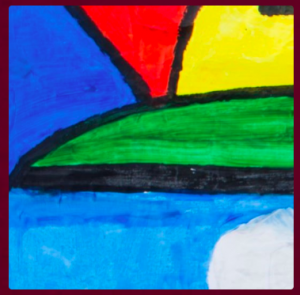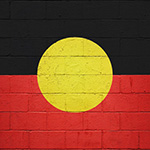This year’s theme is Grounded in truth, Walk together in Courage, watch the video to understand more, and scroll down for some excellent resources we’ve identified specifically for early childhood education.
Reconciliation Action Plan
Have you made a RAP yet? And if you have one, is it embedded in your practice?
Amplify has hosted several outstanding articles sharing real life RAP experiences by educators around the country. Here is a selection that will help bring the RAP process to life for you and your team.
The path to reconciliation starts at our feet
A real life RAP journey with Tyabb Village – part one of four
A real life RAP journey with Tyabb Village, part 2 of 4
Real life RAP journey with Tyabb Village; part 3 of 4
Real life RAP journey with Tyabb Village; part 4 of 4
Getting started and creating your RAP
Curriculum resources
The prime resource for education services wanting to proceed with a RAP is Narragunnawali – but if you are looking for curriculum resources you can find them there too. Ideas include working with colours as cultural symbols (click on this image to the right).
The Narragunnawali site has a searchable database of curriculum resources for all ages, including early childhood education.
Working in OSHC? Take a look at the resources for primary school and think how you might adapt them for your before and after school children.
Reconciliation Week activities
Your first stop for ECE-focused activities is under the curriculum resources at the National Reconciliation Week site.
Ideas this year include:
Create a quiz – ask the children to identify the Aboriginal flag from a small selection of flags.
Walk the talk – create connections between your service’s rooms (if you have more than one) by paper cutouts that connect the different stories or songs each group is featuring during the week – stick those paper images around the walls and floors to make a trail that can be followed around the service.
You can see many more activities that are aimed at, or adaptable for, ECE, at Walk The Talk or in the Reconciliation Week downloadable activity list here.
Engage with language
Looking for inspiration that will really bring Aboriginal culture to life in your service? Take a look at this story Gowrie Victoria shared.
We included children of all ages from our Early Childhood Education and Care Service to participate in learning a song in Woiwurrung language. Our service is situated on Wurundjeri land in Carlton North Victoria, therefore, we respectfully asked elders from the Wurundjeri Council for permission to use the words for the song “heads shoulders knees and toes”. This is one of the children’s favourite songs and we chose it because we knew they were familiar with it. It is not the song that has been suggested by the Indigenous song competition but we are very excited to be participating in our own special way. Brooke from the Wurundjeri council came and taught us the song and it was a great day of fun, celebration and learning for us all. Thank you for this opportunity. Parents Educators and Children from Gowrie Victoria Carlton North.
By: Gowrie Victoria Carlton North, VIC
Connect with respect
Reconciliation Week isn’t only about the children, it’s about your educator team too. Building relationships with your local Aboriginal or Torres Strait Islander community is essential for meaningful activities and educational programs.
Many educators hesitate to reach out or to get information for fear their lack of knowledge will be a barrier to good communication. You could decide to focus your Reconciliation Week this year on the adults in the service and ways to connect with Aboriginal people in your community.
The Share Our Pride website is full of good advice and support to help you connect with respect. Take a look at this information about building respectful relationships, for a start.
Book some learning

Ready to do more?
CELA is offering, Acknowledging and Celebrating Aboriginal Australia – A starting point as a NESA accredited PD on 7 June in Sydney.
As mainstream services, we often feel that we should be acknowledging and celebrating Aboriginal Australia in our service program. But where do we begin? And how do we enable others to understand the importance of this rich and diverse culture?
This workshop is designed to provide educators with a clearer understanding of why they are wanting to introduce Aboriginal Australia into their services. We will also explore ideas about how and who to engage with when ready to embed Aboriginal perspectives into their service program.
QUALITY AREAS – 1,4,5 & 6
Get in touch with the team with info@cela.org.au to find out more.
About CELA
Community Early Learning Australia is a not for profit organisation with a focus on amplifying the value of early learning for every child across Australia - representing our members and uniting our sector as a force for quality education and care.